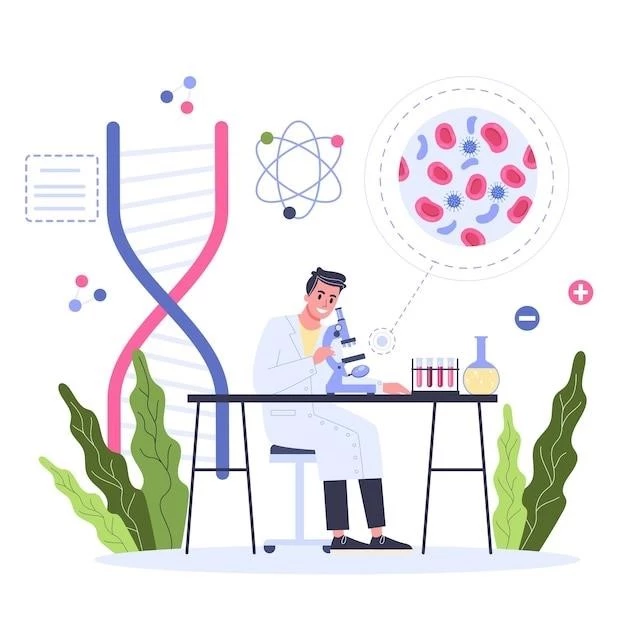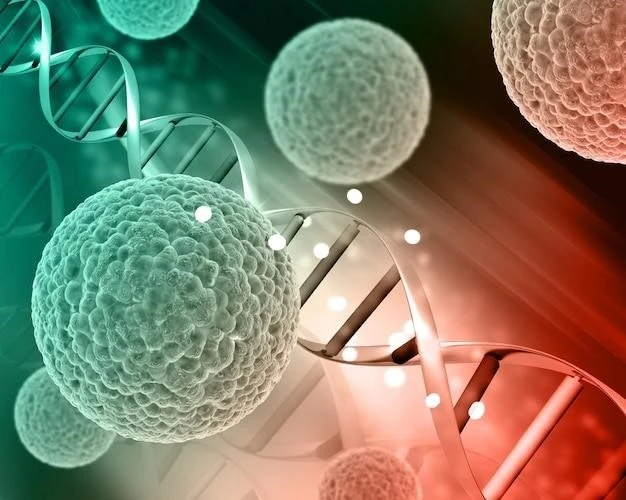Isochromosome 18p Syndrome
Isochromosome 18p Syndrome is a genetic condition characterized by developmental delay, intellectual disability, growth restriction, feeding difficulties, speech delay, seizures, heart defects, kidney abnormalities, hearing loss, and more․ It requires therapy, support, genetic counseling, and early intervention for optimal management․
I․ Overview of Isochromosome 18p Syndrome
Isochromosome 18p Syndrome, also known as i(18p) syndrome, is a rare genetic disorder caused by an abnormality in chromosome 18; Typically, individuals with this syndrome have an extra arm of the short (p) arm of chromosome 18, leading to various physical and intellectual challenges․
Common symptoms of Isochromosome 18p Syndrome include developmental delay٫ intellectual disability٫ growth restriction٫ feeding difficulties٫ speech delay٫ seizures٫ heart defects٫ kidney abnormalities٫ and hearing loss․ Each individual may experience a unique combination and severity of these symptoms․
Individuals with Isochromosome 18p Syndrome often require multidisciplinary care to address the wide range of medical, developmental, and social needs associated with the condition․ Early diagnosis and intervention are essential in improving outcomes and quality of life for affected individuals․
Due to the rarity of Isochromosome 18p Syndrome, it is important for healthcare providers to have a good understanding of the condition’s characteristics and potential comorbidities to provide appropriate support and treatment for affected individuals and their families․
Research into Isochromosome 18p Syndrome is ongoing to better understand the underlying genetic mechanisms and to improve therapeutic approaches aimed at enhancing the quality of life for those living with this rare disorder․
II․ Symptoms and Effects of Isochromosome 18p Syndrome
Isochromosome 18p Syndrome presents a spectrum of symptoms and effects that can impact various aspects of an individual’s health and development․ Common manifestations of this genetic condition include⁚
- Developmental Delay⁚ Individuals with Isochromosome 18p Syndrome often experience delays in reaching developmental milestones such as sitting, crawling, and walking․
- Intellectual Disability⁚ Cognitive challenges are prevalent in individuals with this syndrome, ranging from mild to severe intellectual disability․
- Growth Restriction⁚ Many individuals exhibit growth delays in height and weight, leading to short stature and small head size․
- Feeding Difficulties⁚ Difficulties with feeding and swallowing may arise in infancy and persist into childhood․
- Speech Delay⁚ Delayed speech and language development are common, requiring speech therapy and interventions․
- Seizures⁚ Epileptic seizures can occur in some individuals with Isochromosome 18p Syndrome and may require antiepileptic medication․
- Heart Defects⁚ Congenital heart abnormalities are observed in a subset of individuals, necessitating cardiac evaluation and potential interventions․
- Kidney Abnormalities⁚ Some individuals may have structural or functional kidney issues that require monitoring and management․
- Hearing Loss⁚ Sensorineural hearing loss or other auditory issues can be present, requiring hearing assessments and interventions․
The combination and severity of these symptoms can vary among individuals with Isochromosome 18p Syndrome, highlighting the importance of personalized care plans tailored to address the specific needs of each person affected by this genetic condition․
III․ Diagnosis and Treatment
Diagnosing Isochromosome 18p Syndrome often involves a combination of clinical evaluations, genetic testing, and imaging studies․ A detailed medical history, physical examination, and developmental assessments are essential components of the diagnostic process․
Genetic testing, such as chromosomal microarray analysis (CMA) or fluorescence in situ hybridization (FISH), can confirm the presence of an isochromosome involving the short arm of chromosome 18 (i(18p))․ These tests help identify the specific genetic abnormality associated with Isochromosome 18p Syndrome․
Once a diagnosis is established, a multidisciplinary approach to treatment and management is crucial to address the diverse needs of individuals with this syndrome․ The treatment plan may include⁚
- Early Intervention⁚ Early intervention services, including physical therapy, occupational therapy, speech therapy, and developmental interventions, play a vital role in supporting optimal growth and development․
- Special Education⁚ Tailored education plans and special education services can help individuals with intellectual disabilities reach their full potential in academic and social settings․
- Medical Interventions⁚ Treatment for specific symptoms like seizures, heart defects, kidney abnormalities, and feeding difficulties may involve medications, surgical procedures, or other medical interventions․
- Therapeutic Support⁚ Ongoing therapies and interventions, such as behavioral therapy, sensory integration therapy, and social skills training, can enhance the quality of life for individuals with Isochromosome 18p Syndrome․
- Supportive Care⁚ Providing comprehensive care and support to individuals and their families is essential in addressing the physical, emotional, and social aspects of living with a rare genetic condition․
Regular monitoring by healthcare professionals, including geneticists, pediatricians, neurologists, and other specialists, is important in managing the health and well-being of individuals with Isochromosome 18p Syndrome․ Collaborative care ensures a holistic approach to treatment and support for affected individuals throughout their lifespan․
IV․ Support and Care for Individuals with Isochromosome 18p Syndrome
Support and care for individuals with Isochromosome 18p Syndrome require a collaborative and comprehensive approach to address their unique needs and challenges․ Families, healthcare providers, educators, and community resources play essential roles in providing the necessary support for those affected by this rare genetic condition․

Here are key aspects of support and care for individuals with Isochromosome 18p Syndrome⁚
- Family Support⁚ Families of individuals with Isochromosome 18p Syndrome benefit from access to support groups, counseling services, and respite care to help cope with the emotional, financial, and practical challenges associated with caring for a loved one with complex needs․
- Medical Care Coordination⁚ Coordinating care among multiple healthcare providers, specialists, therapists, and educators is essential to ensure that individuals with Isochromosome 18p Syndrome receive comprehensive and cohesive medical and developmental support․
- Educational Support⁚ Access to appropriate educational programs, individualized education plans (IEPs), and special education services can help individuals with intellectual disabilities and developmental delays maximize their learning potential and social integration․
- Therapeutic Interventions⁚ Ongoing therapies, such as physical therapy, occupational therapy, speech therapy, and behavioral interventions, play a crucial role in addressing motor skills, communication abilities, and behavioral challenges in individuals with Isochromosome 18p Syndrome․
- Community Resources⁚ Connecting with community organizations, advocacy groups, and disability services can provide additional support, resources, and information to families and individuals living with Isochromosome 18p Syndrome․
- Transition Planning⁚ As individuals with Isochromosome 18p Syndrome transition from childhood to adulthood, comprehensive transition planning that addresses vocational, educational, healthcare, and social needs is essential to ensure a smooth and successful transition into adulthood․
By fostering a supportive and inclusive environment that addresses the physical, emotional, and social well-being of individuals with Isochromosome 18p Syndrome٫ we can enhance their quality of life and promote their overall development and independence․
V․ Genetic Counseling and Family Planning
Genetic counseling plays a crucial role in assisting families affected by Isochromosome 18p Syndrome in understanding the genetic basis of the condition, assessing the risk of recurrence, and making informed decisions about family planning․ Here are key points related to genetic counseling and family planning⁚
- Genetic Testing⁚ Genetic testing can confirm the presence of an isochromosome involving chromosome 18p and identify carriers of the genetic abnormality․ Testing may be recommended for at-risk individuals and family members to assess the risk of passing the syndrome to future generations․
- Risk Assessment⁚ Genetic counselors can help families understand the likelihood of having a child with Isochromosome 18p Syndrome based on family history, carrier status, and other relevant factors․ They provide personalized risk assessments and information on available testing options․
- Family Planning⁚ Families considering pregnancy can benefit from genetic counseling to discuss reproductive options, such as preimplantation genetic diagnosis (PGD), prenatal testing, or adoption, based on their individual circumstances and risk factors․
- Emotional Support⁚ Genetic counseling offers emotional support and guidance to families navigating complex genetic information and decisions related to family planning․ Counselors provide a supportive environment to address concerns and explore options․
- Educational Resources⁚ Genetic counselors provide families with educational resources about Isochromosome 18p Syndrome, inheritance patterns, medical implications, and available support services․ Access to reliable information empowers families to make informed choices․
- Multidisciplinary Approach⁚ Collaboration between genetic counselors, healthcare providers, and support networks ensures that families receive comprehensive, coordinated care and support throughout the genetic counseling and family planning process․
By engaging in genetic counseling and family planning discussions, individuals and families affected by Isochromosome 18p Syndrome can make informed decisions about their reproductive choices, understand the genetic implications of the condition, and access the support they need to navigate the challenges associated with a rare genetic disorder․
